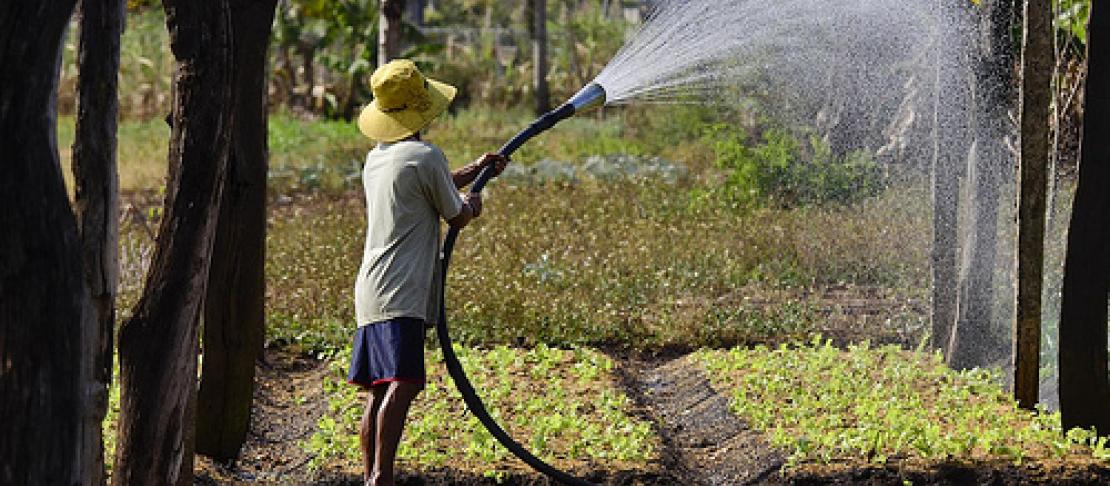Report back from Dublin conference on hunger, nutrition and climate justice

by Vanessa Meadu
We recently returned from Dublin, Ireland, where smallholder farmers and global thought leaders joined to share experiences, innovations, and ways forward for Hunger, Nutrition and Climate Justice.
Here is a round-up of our reports back plus a selection of media stories featuring CGIAR work.
Connecting local with global
What happens when some of the world's thought leaders in hunger, nutrition and climate justice meet with innovators working at the frontlines of climate change in developing countries? These pairings helped bring lofty theories down to earth, infusing discussions on rights, risk, knowledge and empowerment with touching and inspiring examples from around the world. Read more…
Small farmers hold the key to tackling climate change wrote Frank Rijsberman, CEO of CGIAR, in an opinion piece for Reuters AlertNet. During his panel remarks (alongside Mary Robinson and Al Gore), Rijsberman acknowledged the importance of building on farmers’ knowledge when developing scientific solutions to climate change.
In a passionate speech, Al Gore pinpointed climate risks for farmers. Ireland’s President Michael Higgins emphasized unequal and inadequate access to food is one of the greatest failures of the global system. Rachel Kyte of the World Bank and CGIAR Fund Council emphasized the need to focus on building climate resilience for farmers, in the context of the millennium development goals.
Watch Frank Rijsberman, Mary Robinson, Al Gore and President Michael Higgins, and others live from the conference
Youth leaders also spoke out and demanded that conference participants think further ahead than a post-2015 agenda and start thinking about a post-2050 agenda.
View photos from the event
Knowledge is power
When it comes fighting hunger, food insecurity and climate injustice, the most successful initiatives put farmers’ knowledge, and needs, first. The conference highlighted promising initiatives including a Case Study from Kaffrine, Senegal where farmers help develop and use forecasts to combat climate risks.
Read case studies presented at the conference:
Empowering a local community to address climate risks and food insecurity in Lower Nyando, Kenya
Watch: Putting climate information into farmers' hands
Learning, together
The conference’s learning circles were a unique opportunity for farmers and innovators from developing countries to discuss challenges and ideas directly with researchers, policy makers and the business community. The sessions were akin to ‘matchmaking’ for climate innovators. They also sparked conversations about empowerment, including an example from Nyando in Western Kenya where a community is addressing climate risks and food insecurity.
Moving ahead: from words to action
As the conference wrapped up the big question was how to move from learning to leading, in other words, "buttering the parsnips." Ensuring research has an impact is at the heart of what we do at the CGIAR Research Program on Climate Change, Agriculture and Food Security (CCAFS), from participatory action research to harnessing the power of local knowledge. Read more...
Download the Conference Report: A New Dialogue: Putting People at the Heart of Global Development
WATCH: Thanks from the grassroots
Vanessa Meadu is Communications and Knowledge Manager for the CGIAR Research Program on Climate Change, Agriculture and Food Security (CCAFS). The CCAFS team reported live from the Hunger, Nutrition, Climate Justice conference in Dublin from 15-16 April 2013. Full coverage is on the CCAFS blog. Engage with us on twitter @cgiarclimate using #HNCJ.